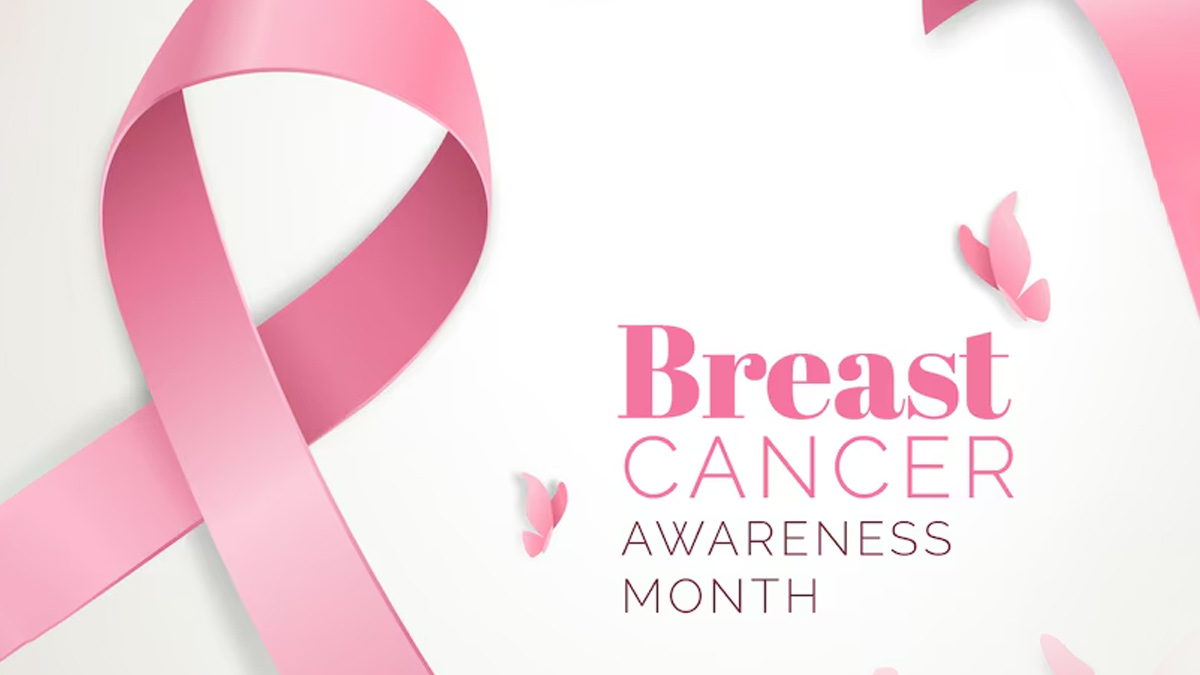
When we think about breast cancer prevention, our minds often go to genetics, lifestyle choices, and regular screenings. But did you know that your gut health might also play a role in reducing the risk of breast cancer? The connection between gut microbiota and breast cancer prevention is a growing area of interest in medical research. We spoke to our expert Dr Sindhu V A, Senior Consultant, Surgical Oncologist, Gleneagles BGS Hospital Kengeri, Bengaluru, who explained the role of gut health in breast cancer prevention.
Table of Content:-
Breast Cancer: A Global Concern

Breast cancer is the most common cancer in women, excluding skin cancers. It is currently the leading cause of cancer-related deaths among women globally. The predicted worldwide incidence of female breast cancer by 2050 is estimated to be 3.2 million new cases per year. These alarming numbers entail the need for stringent screening and preventive measures.
How Does Gut Microbiota Influence Breast Cancer

"The gut, or Gastrointestinal (GI) tract, contains over 500 different types of bacteria that work together in a complex system. When this balance of bacteria is disrupted, it can increase the risk of developing inflammatory diseases, autoimmune disorders, and even cancers, like stomach cancer caused by the bacteria Helicobacter pylori," said Dr Sindhu.
An imbalance in the gut's microbial community, called dysbiosis, may promote cancer development. "This happens through mechanisms, such as long-term inflammation, damage to genetic material (DNA), and changes in how the body processes nutrients. These factors can make tumours grow faster and may also affect how well cancer treatments work. Some studies even suggest that the composition of gut bacteria could influence how aggressive certain cancers become," added Dr Sindhu.
Also Read: Is Heart Disease a Greater Threat to Women Than Breast Cancer? Here’s What You Need to Know
Microbial Dysbiosis and Cancer Risk

Dysbiosis occurs when harmful bacteria outcompete beneficial bacteria. Several factors can influence the composition of gut microbiota, including age, diet, stress, and lifestyle habits like alcohol consumption and smoking. Gut microbiota imbalances may promote cancer through chronic inflammation, changes in the microenvironment, and altered metabolism.
The Role of Oestrogen and the Gut Microbiome
"The risk of oestrogen-driven breast cancer in postmenopausal women is associated with the concentration and duration of exposure to circulating oestrogen. Estrobolome refers to the aggregate of intestinal bacterial genes whose products metabolise oestrogen and hence may influence the risk of oestrogen receptor-positive breast cancer in postmenopausal women," explained Dr Sindhu.
Oestrogen is conjugated in the liver and released into bile, which then enters the intestine. Some intestinal bacteria secrete beta-glucuronidase, which deconjugates oestrogen marked for faecal excretion allowing binding to their receptors.
Plasma oestrogen levels were directly associated with fat and inversely associated with fibre. The Western-type diet increases oestrogen levels and decreases the oestrogen-binding globulin increasing hormone availability for tissues like the breast, giving a sex hormone pattern that is commonly seen in breast cancer.
Also Read: Breast Cancer Treatment: Expert Explains Its Link With Heart Disease And How DASH Diet Can Help
Prebiotics and Probiotics for Gut Health

“Prebiotics and probiotics support a healthy balance of gut bacteria and help restore the microbial ecosystem. Consumption of probiotics causes changes in the intestinal microbiome composition and decreases the activity of faecal beta-glucuronidase. This reflects a decrease in oestrogen levels and a decrease in the risk of breast cancer,” added Dr Sindhu.
Gut Health, Obesity, and Breast Cancer
Dysbiosis of the gut microbiota can contribute to obesity. This can lead to increased fat tissue, which in turn raises the risk of breast cancer by converting hormones and reducing the production of certain proteins in the liver, leading to higher levels of oestrogen. Therefore, adjusting the gut microbiota to restore a healthy balance can be a targeted strategy to combat obesity and reduce the associated risk of breast cancer.
Gut bacteria can play a role in cancer development by damaging DNA, making it harder for cells to die naturally, and causing them to grow uncontrollably. "Some harmful bacteria can release toxins and trigger mutations that lead to cancer. They can also cause chronic inflammation in the body, which creates an environment that promotes cancer growth. When there is an imbalance in the gut microbiota (dysbiosis), these harmful effects are more likely to occur, increasing the risk of cancer," added Dr Sindhu.
Microbes and Cancer Development
Gut bacteria can also produce substances that help protect against cancer, like butyrate, cadaverine, and lithocholic acid. The way the immune system interacts with gut bacteria and how these bacteria affect DNA are important factors in the development of breast cancer. This means gut bacteria could become a target for future treatments.
“All these correlations indicate the need for further studies to explore gut microbiome and breast cancer risk. The gut microbiota profile and its metabolites may serve as breast cancer biomarkers once well-characterised. Prebiotics, probiotics, and supplements should be explored for use in the prevention and adjunctive treatment of breast cancer by reversal of gut microbial dysbiosis,” concluded Dr Sindhu.
[Disclaimer: This article contains information provided by an expert and is for informational purposes only. Hence, we advise you to consult your own professional if you are dealing with any health issues to avoid complications.]
Also watch this video
Read Next
Breast Cancer Awareness Month: How Likely Are You to Get Breast Cancer If Your Mother Had It?
How we keep this article up to date:
We work with experts and keep a close eye on the latest in health and wellness. Whenever there is a new research or helpful information, we update our articles with accurate and useful advice.
Current Version